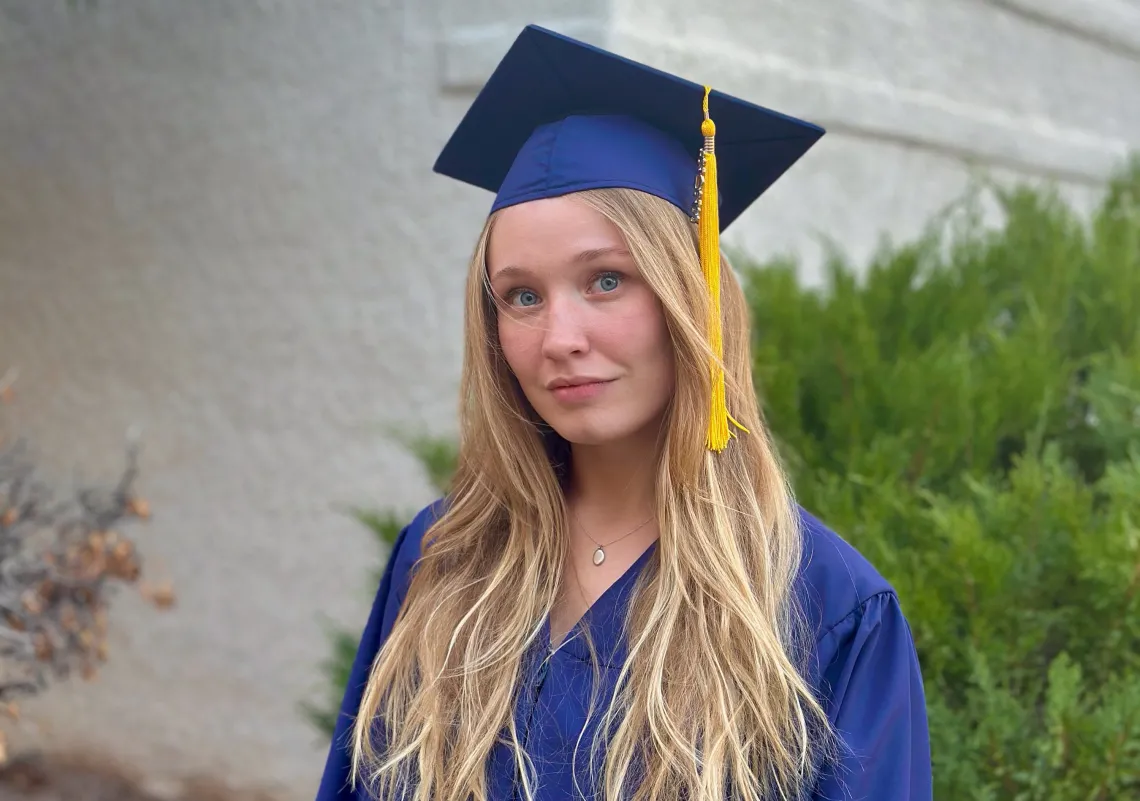Outstanding Seniors in the College of Science: Sofia Ragonese

This fall, each department in the University of Arizona's College of Science nominated an outstanding senior who went above and beyond during their time as a Wildcat. We are pleased to share their stories as they reflect on their time at UArizona. Next up in the senior spotlight series is Sofia Ragonese in the Department of Molecular and Cellular Biology.
Sofia Ragonese
Hometown: Moscow, Russia
Department: Molecular and Cellular Biology
College of Science: Why did you choose your area of study?
Ragonese: In high school, I started researching bacteria that could metabolize plastic at the Moscow Institute of Physics and Technology in Russia, which led to my expedition to the north Arctic Circle to continue doing similar studies. This experience made me feel that I can take biology anywhere I travel and be curious whenever I want. In addition, I love that research can combine creativity and logic.
COS: Tell us about a class or research project you really enjoyed.
Ragonese: I enjoyed MCB 425 cancer discoveries class because, during this well-taught course, you mostly rely on research papers to learn. The class can be challenging and confusing at first, but then it makes you develop your literature review and paper reading skills significantly. I loved the MCB 397A Outreach Development course that teaches you how to interact and present in front of middle schoolers by explaining complicated concepts on an accessible level, which sometimes can be challenging but refreshing. Last but not least, I enjoyed my projects during almost three years of my lab work studying the lifecycle of Human Papillomavirus at the Koenraad Van Doorslaer’s laboratory since each was so different and innovative in various ways.
COS: What is one specific memory from your time at UA that you'll cherish forever?
Ragonese: Even though I have gone to the UA only for two years after Pima CC, I have a lot of memories that I will cherish. The main of them is overcoming the fear of not being smart enough to be in research or getting a degree in a foreign language. Joining the Koenraad Van Doorslaer’s lab and working with Dr. Rob Jackson was such a meaningful part of my experience as well, which formed my major choice, me as a scientist, and my future goals. I have also built many vital friendships that greatly support me as a person and professional.
COS: What is next for you after graduation?
Ragonese: After graduating, I am planning to work for some years as a research assistant and then pursue PhD to continue academic research. I think contributing to science and educating a new, talented generation of specialists is my primary professional aspiration in life.

